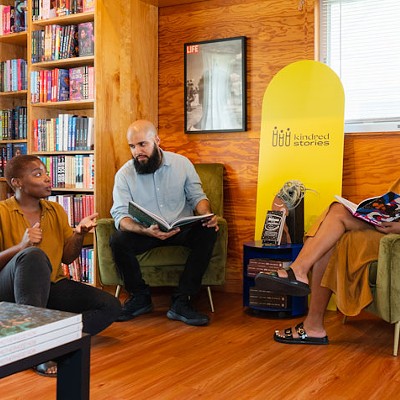Support Us
Houston's independent source of
local news and culture
account
- Welcome,
Insider - Login
- My Account
- My Newsletters
- Contribute
- Contact Us
- Sign out
[
{
"name": "Related Stories / Support Us Combo",
"component": "11591218",
"insertPoint": "4",
"requiredCountToDisplay": "4"
},{
"name": "Air - Billboard - Inline Content",
"component": "11591214",
"insertPoint": "2/3",
"requiredCountToDisplay": "7"
},{
"name": "R1 - Beta - Mobile Only",
"component": "12287027",
"insertPoint": "8",
"requiredCountToDisplay": "8"
},{
"name": "Air - MediumRectangle - Inline Content - Mobile Display Size 2",
"component": "11591215",
"insertPoint": "12",
"requiredCountToDisplay": "12"
},{
"name": "Air - MediumRectangle - Inline Content - Mobile Display Size 2",
"component": "11591215",
"insertPoint": "4th",
"startingPoint": "16",
"requiredCountToDisplay": "12"
}
,{
"name": "RevContent - In Article",
"component": "12527128",
"insertPoint": "3/5",
"requiredCountToDisplay": "5"
}
]
Texas is the kind of place that's changed a lot over the last several decades, and the Houston area seems to be transforming at a particularly fast pace. Nowadays, the city and surrounding area is getting attention for its emergence as an international city, being home to many cultures and people from all over the world. In the early '70s that was still a long way off, and Houston was probably more widely known as a town built on oil money and NASA, where outsiders figured most residents probably listened to country music and dressed like cowboys.
In 1970, a club owner in Pasadena, Texas named Sherwood Cryer teamed up with country singer Mickey Gilley, and decided to reopen a club he owned that had previously been named Shelley's. The club was almost immediately successful, and grew in popularity, as did Mickey Gilley's music, over the next few years. The huge honky tonk drew crowds of people throughout the week, becoming a home away from home for many of the area's residents who worked in nearby refineries and at other jobs before heading to Gilley's Club to dance, drink, and try to find love, or a reasonable approximation of it, somewhere across the vast expanse of the club's concrete floor. One time regular Paul Wagner described the place with a mixture of nostalgia tempered with memories of the club's shortcomings.
"It was almost like a huge barn. The bathrooms were always filthy, and it was hot a lot of the time. I worked at a gas station over on South Shaver, and would head to Gilley's after work sometimes. I loved the place, but you had to watch your step, it didn't take much to get in a fight there."
Gilley's Club's reputation as an enormous rough and tumble honky tonk eventually got Hollywood's attention, and in 1979 a big budget movie production rolled into Pasadena to make a film heavily featuring the night club, and starring John Travolta and Debra Winger.
"Urban Cowboy" tells a relatively simple tale. Bud moves from his family farm in Spur, Texas to Pasadena to stay with his Uncle Bob's family while he works in a refinery saving money to move back out to the country and buy some land. He almost immediately visits Gilley's nightclub and rapidly gets drawn into the scene there. Almost as quickly, Bud meets Sissy, an attractive regular at the club, and they decide to get married within a short period of time. The ceremony takes place at Gilley's, and the newlyweds move into a new trailer that Bud has bought nearby. Unfortunately, wedded bliss is fleeting, because the couple fights often and soon a creepy ex-con named Wes starts hanging out at the club, rapidly seducing Sissy and causing Bud a lot of grief. The remainder of the film has Sissy shacking up with Wes, who turns out to be a violent monster, and Bud turning to a rich woman who likes to slum it with working class cowboys, before the movie's protagonists end up together again, presumably to live something resembling "happily ever after." It's not a particularly uplifting story, and none of the characters seem like good people, but "Urban Cowboy" still manages to entertain.
The movie makes a few interesting blunders along the way that observant fans can pick up. There are mountains in the distance behind Bud and Sissy's trailer park, and the last time I checked Pasadena, Texas is bereft of mountain ranges. Most of the film was filmed in the area, but that scene obviously was not. The film's villain, Wes, shares a tequila drinking scene with Sissy, where he makes a toast to "La Vida Luna," which he incorrectly translates as "the crazy life." The toast he makes would translate to "The life moon," and is an odd thing to say even after a few shots of tequila.
KEEP THE HOUSTON PRESS FREE...
Since we started the Houston Press, it has been defined as the free, independent voice of Houston, and we'd like to keep it that way. With local media under siege, it's more important than ever for us to rally support behind funding our local journalism. You can help by participating in our "I Support" program, allowing us to keep offering readers access to our incisive coverage of local news, food and culture with no paywalls.
Trending Arts & Culture
- Whose Story is It in The Father at 4th Wall Theatre Co.
- Love is in the Alley's Charming Production of Brontë Classic Jane Eyre
- HGO's Don Giovanni Offers Sex, Deceit and a Final Reckoning All Wrapped Up in Mozart's Music
-
Sponsored Content From: [%sponsoredBy%]
[%title%]

Don't Miss Out
SIGN UP for the latest
arts & culture
news, free stuff and more!
Become a member to support the independent voice of Houston
and help keep the future of the Houston Press FREE
Use of this website constitutes acceptance of our
terms of use,
our cookies policy, and our
privacy policy
The Houston Press may earn a portion of sales from products & services purchased through links on our site from our
affiliate partners.
©2024
Houston Press, LP. All rights reserved.




